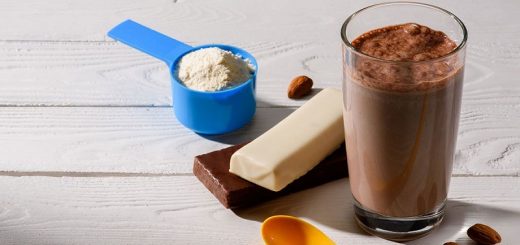Are there vitamins to help memory and concentration?
Memory and concentration are variable factors, which fatigue and the motions of life can affect. So that our mind can function optimally, resisting even the daily landslides. It is possible to integrate vitamins for memory and concentration. On the table, in fact, there are essential vitamins for brain and mnemonic activity. But to be able to exploit them correctly it is necessary to know them.
Several scientific studies have shown that as the majority of the organs present within the human body. The brain also needs to be supported by an adequate diet. Which ensures the right intake of nutrients and, with this, promotes the proper operation.
In general, medical science recommends consuming at least five portions of fruit. And vegetables daily, essential to provide the human body with vegetable substances, vitamins. Mineral salts are necessary for its health. And that of the mind that guides it.
Mnemonic activity, in fact, tends to be compromised by various external and physiological factors. The human ability to bring back the experience of a past life to memory is the cellular aging that occurs with age and is the use of harmful. Chemicals, such as alcohol, drugs or aggressive drugs. Stress from everyday life and even the onset of neurological diseases can also contribute.
To help the memory to be elastic and revive the cognitive processes that are the basis of correct memory activity. It is necessary to take vitamins that, in addition to promoting a good functioning of the mind, prevent cellular aging. These vitamins, naturally present in food, can be identified in three categories: the antioxidants, the water-soluble vitamins of group B. And the water-soluble pro-hormone vitamins of group D.
Vitamins for memory and concentration: antioxidants
Antioxidants, necessary to protect the brain from the action of free radicals. Thereby improving memory activity, are vitamins A, C. And E naturally present in different foods. Among these are carrots, tomatoes, broccoli, citrus fruits, berries. It is one of the best their vitamins to help memory and concentration.
And apricots, some types of nuts, such as walnuts and hazelnuts, cod liver oil and oil of sunflower seeds. In general, all those elements that show a yellow-orange color contain a good dose of antioxidants. These, by virtue of their vitamin content, are suitable for improving the structure of blood vessels, nourishing the brain so as to improve coordination, memory, and balance.
B vitamins for memory
Among the most important vitamins for memory. And concentration we find the B vitamins, eight in total, contribute to different purposes. Some, such as thiamine, is used to convert carbohydrates into energy. And can be taken primarily from whole foods (bran, cereals, barley). Others, such as B9 (or folic acid), contribute to the normal psychological function, supporting the brain in the information transmission activity.
In nature, it is possible to find the B group vitamins in the most diverse foods. Among these, to contain more vitamins are peanuts, egg yolks and beans, rich in choline, a B-group vitamin essential to the memory and development of brain cells. Then, asparagus, fish and dairy products. It is one of the best their vitamins to help memory and concentration.
Group D vitamins
In nature, vitamin D exists in only two variants. There is vitamin D2, present mainly in food. And there is vitamin D3, synthesized by the skin after being exposed to sunlight. Both types of vitamin D are essential to the human body: not only do they contribute to the proper functioning of the immune system.
But they contribute to maintaining normal levels of calcium in the blood. Allowing the mineral to fulfill its neurotransmitter function. On the table, vitamin D2 can be found in some types of fish (including salmon, herring, sardines, and mackerel), in eggs and in products derived from milk, in some vegetables and in mushrooms. It is one of the best their vitamins to help memory and concentration.
Diet and integration
Therefore, having a varied and balanced diet is necessary to ensure that the memory works properly. But studying diets and food combinations at the table is not a walk. There is, however, an expedient that can help those who want to take full advantage of the combined action of vitamins deriving from food sources: color.
The vitamin C is present naturally in the foods that have a red color, orange or yellow. Which means it can be found in citrus fruits, tomatoes, peppers, carrots. It is one of the best their vitamins to help memory and concentration.
Vitamin E tends to be more concentrated in foods that have no color, such as oilseeds, nuts, and avocados. Folic acid, or vitamin B12, whose deficiency can cause memory loss, is found largely in green leafy vegetables, legumes, and fruit.
To support concentration and memory, particularly during periods of greater stress, the support of food supplements containing vitamin B, C, and E and mineral salts useful for protecting cells from oxidative stress such as magnesium, zinc, and selenium can be useful.
Furthermore, the combined action of phosphoserine and arginine is also important for the proper functioning of brain areas responsible for memory processes.
In any case, contact your doctor to advise correct integration.



















